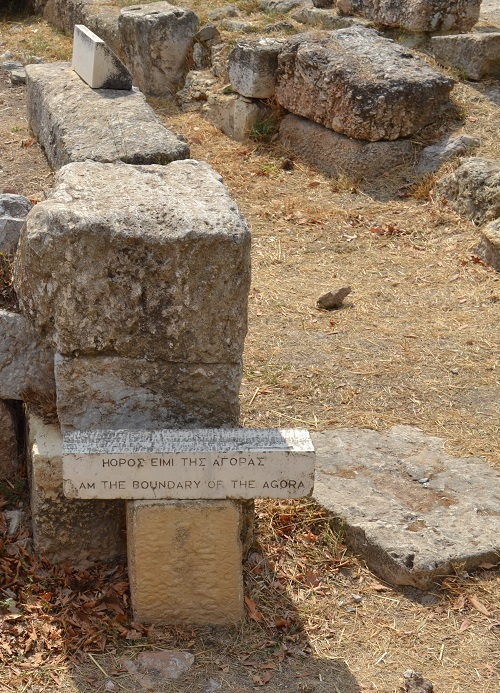At the Margin
25 January 2016
There is something of great potential (and valuable as such, in itself) at the edges of things. Economists talk about marginal cost or benefit and the value of thinking at the margin. But what I mean is more than that. Not only is it worth trying to add value to what we do by going about it in the most efficient way, but it may also be deeply rewarding to explore what is in-between well-established borders (of thought, norms, culture, or country). Truly interesting new ideas spring out from that kind of no-man’s land that lies at the peripheries of something. Take Lev Shestov, for instance, or St Augustine, Simone de Beauvoir or Camus, Nikolai Berdyaev or Unamuno – not quite ‘official’ philosophers (in the way that we might regard Aristotle, Descartes, Kant, or Hegel), but how infinitely poorer would philosophy be without them.
There is a place in the Greek agora, and an inscription next to it, which I’ve always found deeply intriguing – ‘I am the margin of the Agora’, the inscription says. And it would make a fascinating start of a seminar as to what that means


I believe it is true that the small people with big ideas are of great value to a society. After all, the people who are not as well-known are the building blocks for any institution/community.
In terms of the inscription, if we go down the route of the translation of “I am the margin of the Agora”, normally a margin is a line dividing something, a margin on a piece of paper divides the paper however one is still able to write on either side of the margin, one can pass this sign and still be a foot step away from where they just were. There is no wall here saying that you cannot cross, i take this inscription in terms of ‘one should feel comfortable to cross an idea into a bigger realm and “think above and beyond”, go past the comfort zone.
Although out of the box (or ‘margin’) thinking is something to always strive for in every aspect of life, it is interesting to think of it in the context of the word ‘marginalize’ which often has some negative connotations. In order to embrace and explore new ideas that “lie in the peripheries” as you say, we must first stop considering things that are different as wrong or insignificant to norms.
I enjoy the list of ‘Philosophers’ above, who are not completely recognised as true Philosophers. I believe that no matter the title, each person has something to contribute and share to others on their personal meaning of life. Everyone who feels comfortable to do so should share their perspective on values. Without the abundance of information that has been shared over time, we, today, would not be able to find our personal meaning of life and even (maybe) religion. It is just as important to look at the ‘center’ of things as it is to look at the edge. It might not be until the end (or edge) that a certain point has been proven, but the basis of the debate may potentially be hidden within the middle of the argument.